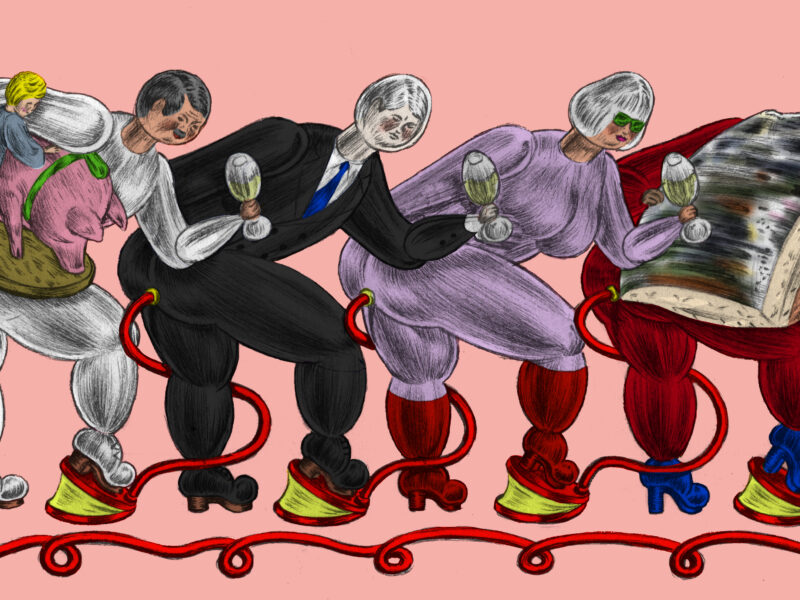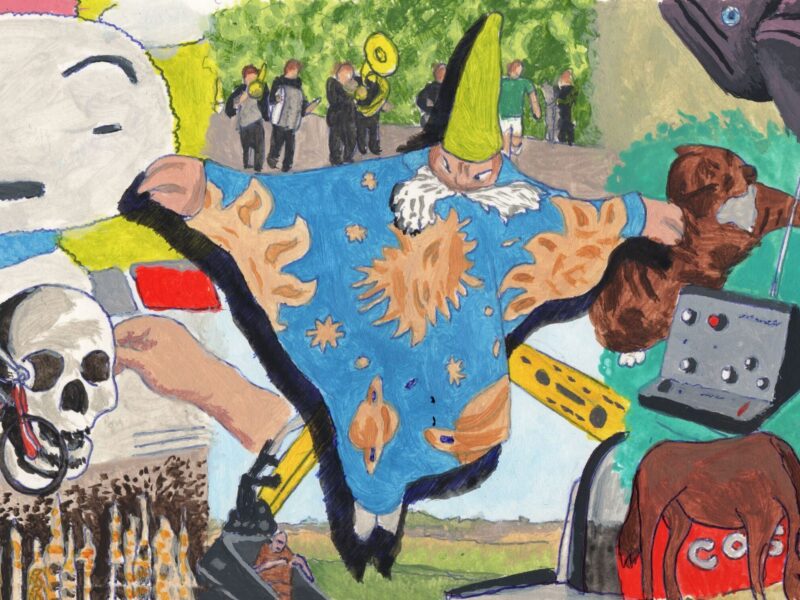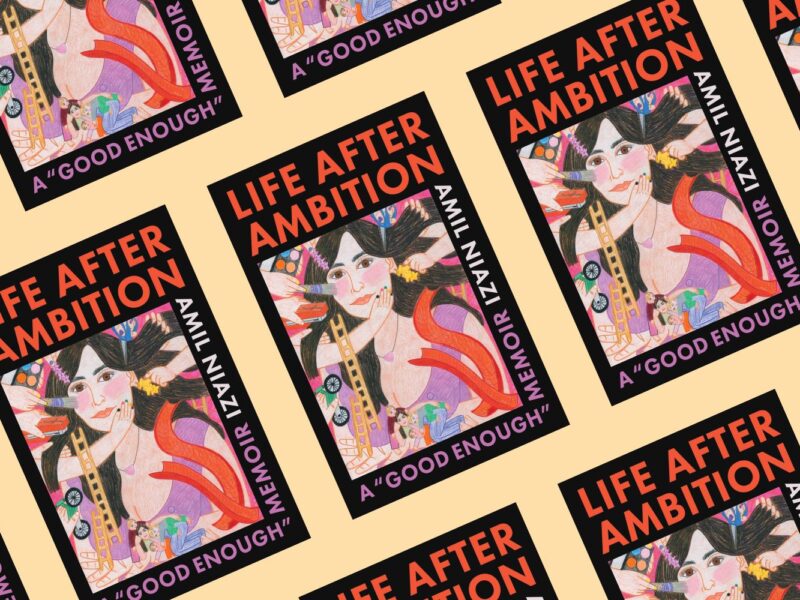For these five artists, creation is an act of resistance, and anti-colonialism is the methodology.
Ask any serious artist about their methodologies, and you’ll likely learn about the techniques they employ in their work, as well as their daily routines and training regimens; about what inspires and motivates them to create the work they do. Ask these five musicians that same question, and you’ll recognize a pattern in their responses: For Anaís Azul, AV María, slic, Dania, and Amita Vempati, anti-colonialism is the methodology.
Since colonialism itself is actions-based, anti-colonialism is also very much about what one does, not simply what one believes. These artists are all politically outspoken. All come from cultures that have been colonized, but they are also citizens of the world’s most powerful imperial machine: the United States. To oppose colonialism can never just be ideological or intellectual, although those components are foundational. In their art and in their lives, these five musicians contend with that duality, and create as an act of resistance—against their oppression, and against the systems that make them oppressors, contrary to their will.
Anaís Azul

Anaís Azul is a queer, nonbinary, Peruvian American vocalist, composer, educator, and activist based in Los Angeles, California. They speak three languages and write music in all of them: Spanish, English, and Quechua, the language of their indigenous Andean lineage. They have a B.A. in music composition and theory, a master’s in performance and composition, and are now pursuing a doctorate in digital composition. With a background rooted in academia, and a socio-political praxis rooted in an amalgam of leftist, populist ideologies, Anaís has developed a clear-eyed vision of who they are: someone who uses their gifts, talents, education, and connections to deliberately subvert the culture of fascism that has come to define the United States, both locally and abroad.
Anaís sings and writes about healing and resistance, and they emphasize the importance of tapping into one’s feelings, especially during bleak times such as the ones we live in. They described playing a recent Pride show, and being the first performer of the day to talk about Gaza on stage.
“It feels weird to just sit here and smile and pretend everything’s okay at this sunny Pride celebration,” Anaís said to the crowd. “But there is no pride in genocide. I really hope that my music can bring people into their bodies; into the complexity of reality and into their emotions.”
Anaís believes their acknowledgement of the current genocide helped the audience engage with the layered nuance of the moment: A crowd formed around them in response, and after the show, a line of concertgoers stood waiting to chat with them offstage.
Over the past several years, through their reclamation of Quechua, as well as their learning to play charango, which they describe as “a colonial instrument with an indigenous twist,” the gravitational pull of Anaís’s music has become more and more explicitly oriented towards antifascism. Recently, they started a collective with some friends called RAWR (Rapid Arts Workers Response). The group takes vital information, such as migrant resources or local jail support numbers, and turns them into easy-to-remember musical jingles, which they then spread on social media.They describe their determination to use social media as a tool for subversion, rather than ego.
“In the music industry at this point, even in the indie music world, the obligation to use social media makes me feel like colonialism is at my throat,” they say. “I don’t want to feel like I’m aspiring towards viral reels. I want my music to touch people. I want my music to be heard, because I do believe in the healing powers of it, because it has healing for me, and I believe that that will have healing for others.”
AV María

An indigenous Puerto Rican trans woman, AV María spent her early adulthood studying photography in New York before returning to Puerto Rico in the devastating aftermath of Hurricane María in 2017.
“I was just really disturbed the whole event,” she says. “It was hard to see my family struggle, queer folk struggling on the island, and I chose to come back. I’ve been here for seven years now.”
Hurricane María’s aftereffects were horrendously compounded by the supreme neglect of the colonizing U.S. government, both in Washington, DC, and through locally installed politicians; some of which the island still deals with today. Once home, AV María began to pursue music, in part with the goal of lyrically confronting these same oppressive power regimes. In 2020, she worked with renowned reggaeton producer, Eduardo Cabra, to release her first single, “Casablanca,” which is an indictment of colonial government structures as a whole. She was invited in 2024 to perform “Casablanca” at Transmission, which is New York City’s premiere trans music fest.
Since then, AV María has become known for her catchy, feminist, political music and videos, such as the sapphic anthem, “TOTONKA!” She’s now working on an album that focuses on her internal landscape, which, she says, these days, often looks like rage, depression, and sadness, largely due to the state of the world.
“It’s very hard to feel helpless when such brute power is in control,” she says. “I have my own personal powers, you know, but as a Puerto Rican trans woman I feel like I don’t have any real systemic power. That’s been really, really, really hard; to balance out hopelessness and hope. Sometimes it’s difficult to imagine a future in which we all still exist.”
To cope with these feelings, she communes with nature, and with other trans and non-binary people, something essential to her well-being.
“I also feel like having a non-binary philosophy is very important in decolonizing our systems, so I definitely try and really embed it into my music and my writing,” she says.
slic
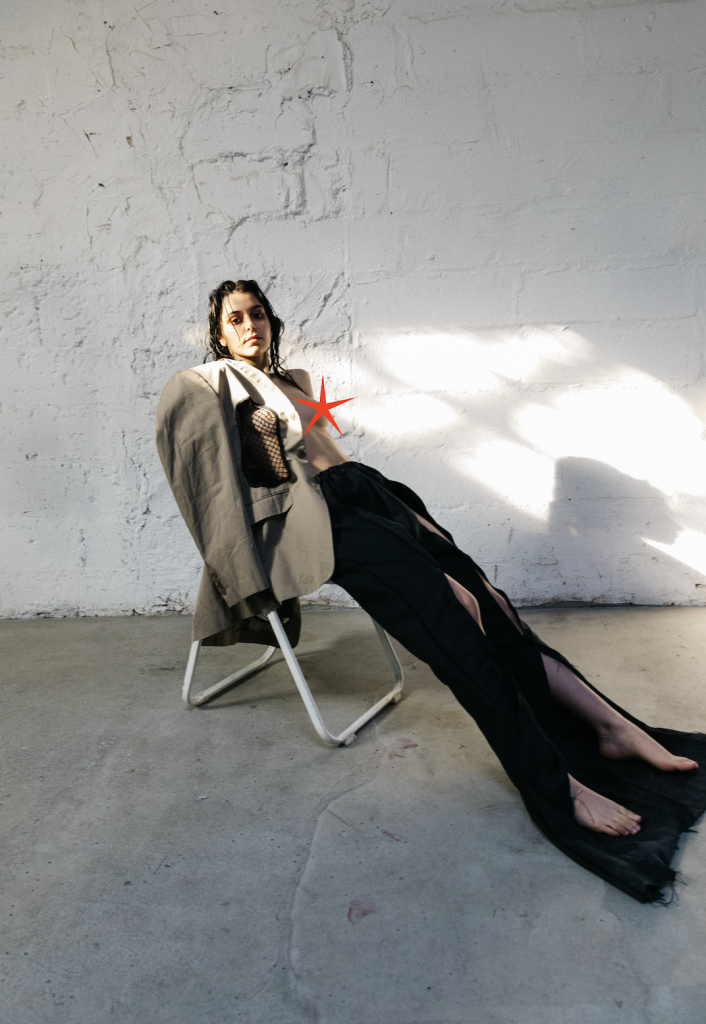
Originally from Caracas, Venezuela, slic grew up in Florida before attending Amherst College in Massachusetts. At school, they had a political awakening while participating in student protests during the Black Lives Matter uprisings of 2014, and after graduating, moved to New York City, where they’ve remained politically active ever since.
“In 2020, between COVID and the uprisings, I shifted what matters to me, what I pay attention to, and what kinds of relationships I have with people,” slic says.
These days, slic is a hyperpop musician, producer, DJ, and video editor. They spend a large amount of their time organizing for tenants’ rights in New York City, as well as using their performances and social media platforms to draw attention to Israel’s U.S.-funded genocide of Palestinians and to raise money for their friend in Gaza. They say that, both as an artist and a person, community is what keeps them going.
“I have a lot more people in my life now than I did in 2019 who share my values; share my politics,” slic says. “Now, if I see an opportunity to act on something politically, I have the ability to do something about it because I’ve built relationships with people who will join me.”
Lately, slic has been turning to traditional Venezuelan music as blueprints for both communal creativity and strength. They are drawing inspiration from Afro-Venezuelan tambores, which arrived to the Americas with enslaved Africans and is used as a tool for communication, community, and spirituality; and tonadas de ordeño, a style of Venezuelan “work songs,” which are traditionally sung communally to calm cows during the milking process.
“I was always looking for a way to feel less alienated. The way that we organize life [in America]—the individualism of it, the commodification—I think art can do things to break that,” says slic.
Dania

Based in New York City, Syrian/Croatian American singer/songwriter Dania used to spend her summers in Syria before the war. But ever since the fall of Bashar al-Assad’s regime last year, she’s been feeling a lot of mixed emotions about what the future holds for Syrians, as a whole.
“I don’t think anyone truly understands what Syrians went through over the last…however many years,” she says. “I’m happy Assad is gone. He destroyed so many families, including my own; so I feel a cautious hope, [but] then also worry. ‘Tumultuous’ is the best word to describe what I’m feeling.”
To counter feelings of hopelessness, Dania uses her growing career and platform to amplify the causes that matter to her. She prefers to perform at community events, including solidarity and aid fundraising efforts for places like Palestine and Syria. But, beyond that, she says that her music helps her cope with her feelings about the world; it also helps her process her emotions and contextualize them, and herself, within her various cultural identities.
Arab femininity factors heavily into Dania’s highly aestheticized music, videos, and performances. Influenced by the 1970s, she makes use of rich, traditional color palettes and vintage fashion motifs from throughout the Arab world. On her Instagram, she talks about being a curvy woman, and the importance of valuing cultural beauty standards beyond Eurocentric thinness. In 2024, she released a song called “Listen,” whose main refrain contains the line, “Arab girls always pretty.” She performed “Listen” at a recent block party in Queens, and was overjoyed at the response from the crowd.
“There were these young Arab girls there. And when I performed the song, I got to see them dance around to, ‘Arab girls always pretty,’ and it was so affirming,” she says. “I was like, ‘This is what I want to do. This is the moment that I’m working for.’”
Amita Vempati
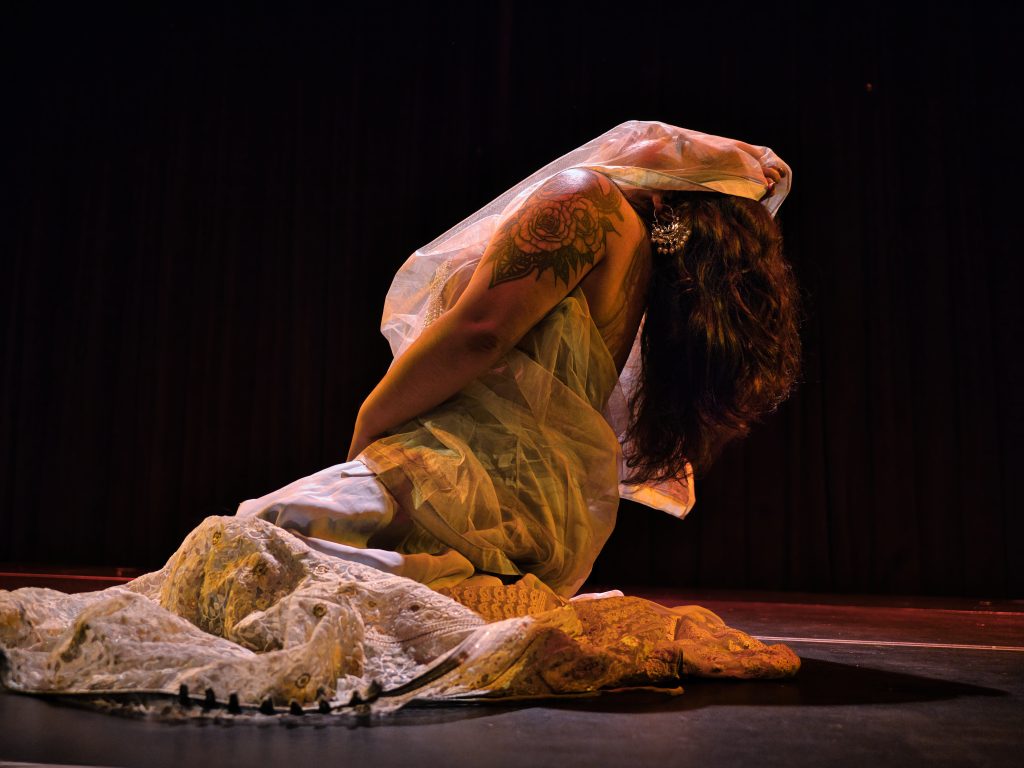
Amita Vempati is an Indian American singer and the Development Manager for Artistic Freedom Initiative, which is a nonprofit that helps refugee artists throughout the world in their relocation efforts.
For several years prior, she worked as a program coordinator for the Brooklyn Raga Massive, a collective of musicians focused on creating events, albums, and education within classical South Asian music. Through her recent work with the collective, Amita helped produce several series showcasing artists from marginalized South Asian communities, an experience that she says helped her understand her own identity as a descendent of a more privileged Indian caste.
“I think many people don’t know this, but the dynamics of castes, and the system of socioeconomic segregation, really follow people into the diaspora and become trends here, too,” she says.
In addition to her community work, Amita describes undergoing a personal evolution rooted in music. Born with a natural love of performing, she was raised to believe that in order to be worthy of getting on stage, she had to be a nearly “perfect” musician. They were also confronted with devaluations of non-Western art.
She recalls a time when her parents encouraged her to quit Indian classical music. “They said that colleges would prefer [if I played] Western classical violin,” Amita says.
Amita says that she internalized capitalist and colonialist standards of perfection that hindered her from being able to see their true artistic potential.
Now in her thirties, Amita is a very serious student of folkloric musical traditions from the Balkans, Turkey, and India, and travels the world to perform in various festivals and choirs. She is passionate about advocating for folkloric art as an incredibly valuable human asset: a site of both cultural preservation, and an opportunity for cross-cultural connection. As an artist and someone who works in the industry of folkloric performance arts, Amita stresses the need for both individual artists, and arts institutions, to be consciously anti-colonial.
“It’s really critical that when you engage in an art form, you strive to become aware of everything that that art form brings in its practice,” she says. “That can include anything, down to the composition, the form, the space that you’re performing in, the audience that you’re performing for.”

